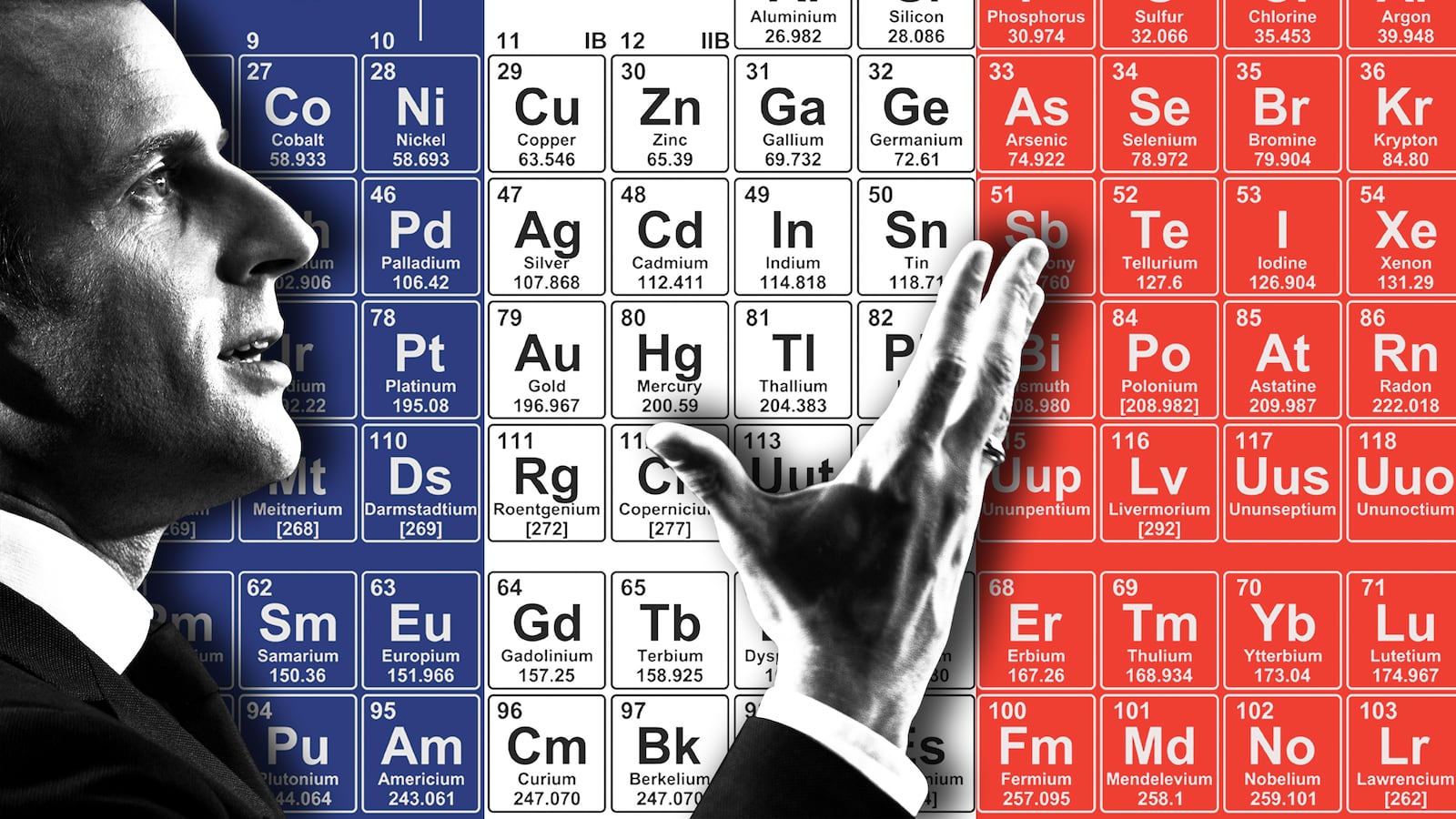French President Emmanuel Macron is upping his global trolling of U.S. President Donald Trump, launching a French government website this week with the url, www.makeourplanetgreatagain.fr.
Just over a week ago, moments after Donald Trump announced his decision to pull out of the Paris climate agreement, France's newly-elected president Emmanuel Macron offered American climate scientists refuge in France in an earnest video broadcast on social media.
Directly addressing the camera in English (a move practically unheard of in France), Macron called on American scientists and other innovators to decamp for France.
"To all scientists, engineers, entrepreneurs, responsible citizens who were disappointed by the decision of the president of the United States, I want to say that they will find in France a second homeland," he said in the video.
The video created an Internet buzz, racking up hundreds of thousands of views on Facebook and tens of thousands of retweets. As of June 9, a little more than a week after it was posted, the video had been viewed 13 million times.
Peter Frumhoff, the director of science and policy at the Cambridge Massachusetts-based Union of Concerned Scientists told The Daily Beast that he thought Macron's video message was gracious and timely.
"At a time when science and scientists are so much under threat in the United States, I thought it was an apt thing to say and I appreciated it."
"I think many American scientists under any conditions would welcome an invitation to come work with French colleagues at European research institutions, he continued. "There is a lot of good work there and science knows no boundaries."
However, Fromhoff also said he didn't know of anyone in the scientific community who took Macron's statement to heart.
"I don’t know that his speech was intended to be followed through with any particular funding specifics or research collaboration support, and obviously that would be relevant to where people go to do their work. I didn't see any details about that."
"Obviously, most people just can't pick up and leave," he added.
He is right. Relocating to France is easier said than done, and would-be American expats (I was one of them) typically face mountains of paperwork and red tape with often-contradictory and baffling requirements. However, on June 8, a week after the video aired, the Elysée Palace launched a new website in English aimed at foreign scientists, entrepreneurs, and others who are interested in working in France, suggesting that Macron's invitation may have been more than a symbolic, goodwill gesture. And in naming the initiative Make Our Planet Great Again, a nervy take on Trump's campaign slogan, the French president also appears to be taking a swipe at Trump and his globally unpopular stance on climate change.
The site opens with the same June 2 video message from Macron. Users are then directed to another page, where they can select a profession—researcher, teacher, entrepreneur, NGO, student, or other—and their country of origin, followed by a brief series of questions regarding their interest in climate change. The site then promises interested parties that they will be contacted with more information within three working days. The site also offers information on grant applications for researchers—a senior-level researcher, for instance, is eligible for a €1.5 million four-year grant.
According to the French daily Le Monde,the site functions as much as a presidential promotion tactic as it does a recruitment tool, calling Macron's efforts a "media counter-offensive," and noting that several questions remained unanswered.
"How will France attract talent that is paid four times as much on the other side of the Atlantic?" the June 9 article asks. "How many openings are being considered in the context of current budgetary constraints?" The article notes that to date, the Elysée is "unable to respond to these questions."
American climate scientists hoping to move across the pond also face a significant linguistic hurdle. French is notoriously difficult to learn and isn’t a language you can “just pick up” after a few months in the country. And although English is the official language of the business world, France’s English language ability has been ranked as the the worst in the EU for several years running according to an annual survey by global language training company, Education First. Furthermore, the French can be less-than-accommodating when it comes to foreigners with rudimentary language skills. If you live here, you are expected to speak French and speak it well.
In the meantime, new work visas targeting overseas science and tech talent, suggest that, Macron's brazen initiative aside, the country is indeed looking to foreign workers to shore up its budding tech and start-up industries. The French Consulate in San Francisco pointed me to a new program called "Le French Tech Ticket" that was launched two years ago. The 12-month program is open to early-stage international technology entrepreneurs who want to build a startup in France, and offers support and funding.
And earlier this year, the country launched the French Tech Visa, a fast-track four-year residence permit aimed at talented foreign techies and their families.
In November, France also announced a "Passeport-talent" visa, open to those with exceptional abilities in the arts, science, and tech industries, including researchers, business investors, and scientific experts.
One person looking into these new initiatives is Mick Liubinskas, a San Francisco-based tech entrepreneur and investor from Australia, who has worked with Silicon Valley companies for the past decade, as well as with climate change organizations. After hearing Macron's speech, Liubinskas took to Twitter to get more information.
"As an entrepreneur, engineer and responsible citizen, I'm seriously considering a move to France from Silicon Valley," Liubinskas tweeted, echoing Macron's remarks.
Liubinskas, who settled in the U.S. before Trump was elected, told The Daily Beast that several French start-ups have reached out to him following his tweet, and he is considering a move here with his family.
"I am investigating it," he said. "People here in Silicon Valley are talking about France, the tech industry, and it's a country moving forward," he added.
Whether Macron's new initiative is a sincere invitation aimed at luring America's embattled climate change scientists to France, another not-so-subtle jab at Trump, or a slick PR move to demonstrate international clout ahead of Sunday's legislative elections, it signified a striking shift in how France, Europe, and the world at large view the U.S. in the age of Trump. By opening the door (however symbolically) to science and tech experts, it appears the French president is also making a statement about America's declining position as a superpower and global innovator.
Indeed, on Tuesday, France's U.N. Ambassador Francois Delattre told reporters that Trump's decision on the Paris Accord not only posed a "threat to the planet's equilibrium," but also signified a decrease in America's global leadership from a geopolitical perspective.
"My personal take is that the American decision can be interpreted as a factor in the erosion of the moral and political leadership of the United States," he said, adding that in terms of climate change, the U.S. is perceived as being "on the wrong side of history."
Liubinskas agrees, describing the current climate for U.S.-based investors and entrepreneurs as "not really appealing."
"I think the opportunities I came here for feel significantly diminished given these (Trump's) policies," he explained. "I came to America to be a part of something moving forward and over the last six months it feels as though things have been going backwards."





